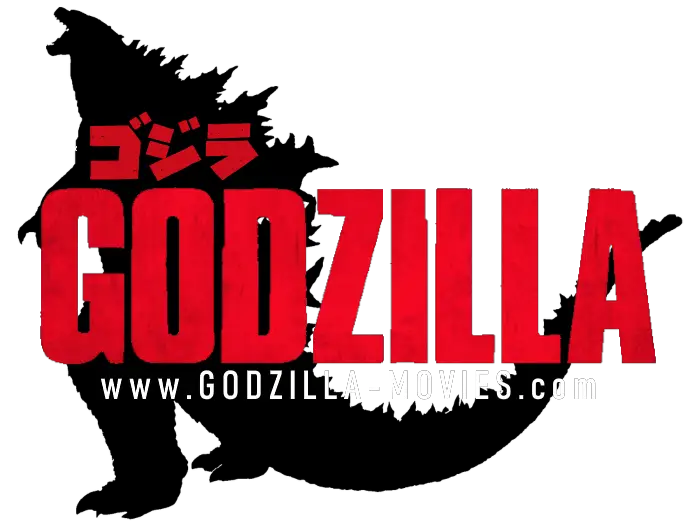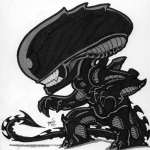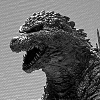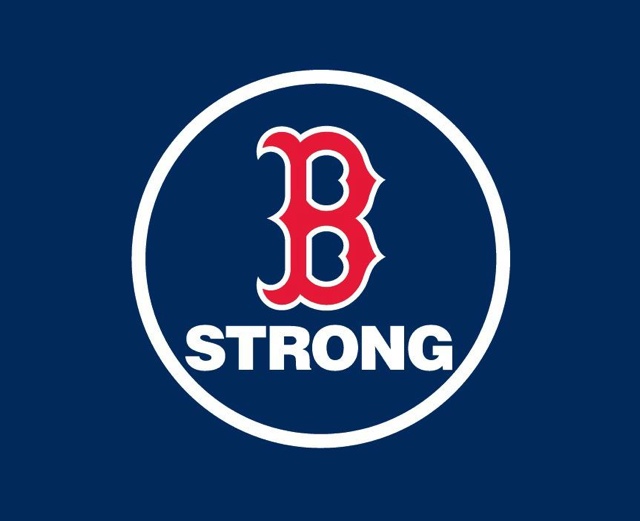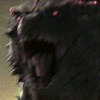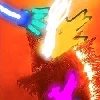Why godzilla’s still king? Some enlightening thing for you to think about. (note: this is kind of a long article.)
1245 Views0 Replies
gojiman
MemberBaragonDec-07-2022 8:23 AMRelatively speaking, Godzilla started small. Litterely
When he first came up from the sea, He was kind of smaller compared to the NOW godzilla, as most of the buildings were bigger than him. But in 2014, he nearly doubled in size. Becoming the largest incarnation of the monster.
By my very dumb calculations, godzilla has grown an average of three feet per year. Which may not seem like a lot to some, but still, IDC. As his influence has grown, so has his body size — to keep ya’ll interested, maybe, or simply to measure up to your guys’ expectations.
It was a lot better to get rid of the rubber latex suit or whatever they used, and get the AWESOME CGI they use now. Much more pleasing to the nowadays godzilla “fans”.
On that note about monsters: They’re big. They have to be. And once new sizes are established for movie monsters, the product of “visual-effects brinkmanship” or audience demand, it’s REALLY impossible to backtrack.
In this case, some of the most recent American interpretations of the kaiju tradition, Cloverfield and the operatic Pacific Rim ( actually now that I think about it, since I'm only 14 , those films are actually pretty old), stretched the playing field by an order of destruction. The Cloverfield monster, called “Clover”, is 25 stories tall and clambers through the ruins of Manhattan like a really spooked horse.
Pacific Rim’s monsters, which emerge from a trans-dimensional breach under the sea, are sublimely massive, almost impossible to comprehend to most.
The concurrence in the “fan forums” seems to be that a Jaeger could easily defeat the original 1954 Godzilla, who rates as only a “Category 2” in the boundaries of the Pacific Rim world. The scale goes up to Category 5.
Such bigness is integral to the hoist of a monster’s menace. Aliens, on the other hand, are generally more human-size, or at least somewhere in that scope , ranging from tallish abductors — “extraterrestrial life,” with the physique of wrestler absolutely pumped with steroids — to toddler-size little green men, like elves . Godzilla is a monster, the predator is an alien. The Alien alien is an alien, obviously, despite its erratic monstrosity. Pacific Rim’s kaiju are monsters; their makers, glimpsed briefly in the film before their entire world is destroyed in a blooming shudder of blue light, are aliens.
As symbolic beings, aliens and monsters articulate different fears. Aliens, ever maniacal, lingering in the territory of the weird,unknown motives, familiar and unfamiliar at once, are speculative stand-ins for the important. This kind of horror — of looking into a set of dead eyes, feeling the gummy touch of a cold extraterrestrial hand — is, as you say, “personal”. Most of the aliens in the 1950s and early 1960s, during the apparently called “Golden Age” of science fiction, were essentially just random Soviets. Aliens are basically meant to be symbols for the darker sides of ourselves, and other people. Fear of difference tends to be small-scale, faced alone in a pitch-black bedroom, or in the dark night of individual prejudice.
Monsters, however, are wholly impersonal. They’re the roaring magnificence of cumulative, collective cultural artwork. In the original Japanese films, all produced by Toho Studios, godzilla is an ancient darkness awakened by human error. godzilla is a one-to-one representation of the horrors of the war, inseparable from anxieties about nuclear power, and in a more “broader” sense, the consequences of manipulating nature. In licensing godzilla to legendary pictures, toho set out one “Specific condition” about the story string: godzilla must emerge after a nuclear incident in Japan. The nuclear trauma he represents has shifted tremendously now — Fukushima instead of Hiroshima — but the message still remains the same: Some things are not meant to be tampered with.( Like our turkey that she spent working on all day.)
Aliens are not familiar, coming to earth unbidden from the far reaches of space. Monsters are the familiar, evoking something specifically primeval. They often come from the sea, where we keep our geological secrets and bury our lost continents; in a more “literary tradition” that dates back to H.P. Lovecraft, they are unspeakably ancient. In horror, we don’t get our thrills by launching ourselves out of the solar system and into the arms of waiting little green men, but when seemingly ancient monstrous creatures come bellowing out of the black gullet of our own world.
Monsters are the compounded greatness of the planet, pressed like carbon. As Ken Watanabe’s character in Godzilla and Godzilla: king of the monsters and GvK, Dr. Ishiro Serizawa, spends the film gravely intoning, godzilla is just nature biting back, restoring the natural order. He is as indifferent as a tornado, more of an event than a creature on the warpath. Although the name “godzilla” is a romanization of “gojira,” the japanese version of “gorira” (gorilla) and “kujira” (whale), he is apparently a “god”, though since I am a Christan, NOT A GOD, and just a very powerful creature, in ancient as a titan and as potent a punisher as Cthulhu, Definitely the original kaiju.
In Pacific Rim as in Godzilla, the world embraces the kaiju with some-what “equal” measures of ecstatic pleasure and terror; audiences of these films react in much of the same way, hooting and hollering in the movie theater as the monsters roar their metallic thunderous, magnificent voices. Watching Godzilla, I screamed like a little girl, but it was a scream of elation, almost of gratitude. The turn-of-the-century horror writer A. Merritt, who trafficked in his share of extreme monstrosity, called this phenomenon the “unhuman mingling of opposites,” a combination of “ecstasy unsupportable and horror unimaginable.” Or Rainer Maria Rilke, more famously: “Beauty is nothing but the beginning of terror which we are still just able to endure.”. Very wise words to me.
Godzilla’s size now brinks on the metaphysical. It humbles, implying the existence of greater and more obscure realms of existence — great, exotic mysteries on a planet we’ve long considered conquered. In one of the most potent and visually arresting scenes of the new Godzilla, a group of Marines parachutes into San Francisco while Godzilla is in the throes of building-toppling battle with the MUTOs — Massive Unidentified Terrestrial Organisms, ’roided-out Mothras. As the Marines leap from the plane and into the burning, choking city, they’re majestic, by the time they’re tumbling down along the monsters’ flanks, they’re plastic Army men, no more significant than soda cans in a hurricane.
It lights something, in the human brain, to see plays of scale this innate. It is a RARE experience. After all, while the infinite universe is a reliable instrument of shock, and awe, it takes nearly meditative levels of intellectual intent — to say nothing of access to a clear night sky — to grasp its magnitude for even a moment. God, too, is invisible, all powerful, and willing to forgive us of our sins. And although we live in bigger and bigger cities, our tactile worlds are dwindling to pinpoints on palm-size devices. godzilla works, in this film as in every previous iteration, because he is undeniable. The massive glorious work of the true God of all things, forces a vital, even mindful , perspective shift: WE are not the masters of the world. We are finite, ineffectual, and eminently squashable.
And that is why godzilla is still the king.
As usual, pls no mean comments if you have any.
